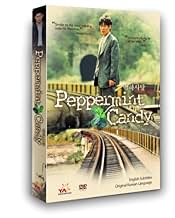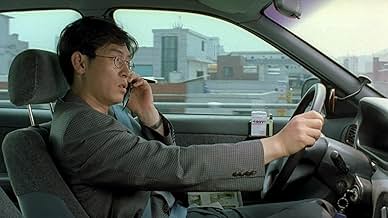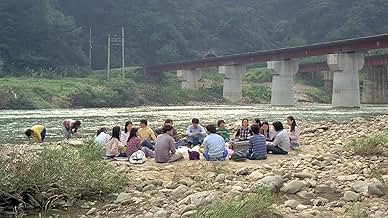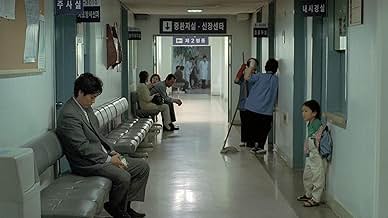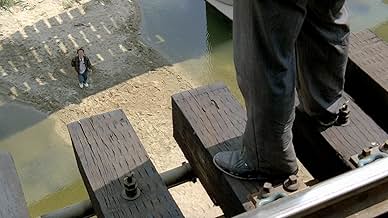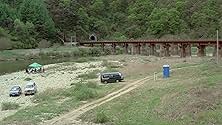Following a man's suicide, time traverses back to reveal six chapters of his life on why he committed suicide.Following a man's suicide, time traverses back to reveal six chapters of his life on why he committed suicide.Following a man's suicide, time traverses back to reveal six chapters of his life on why he committed suicide.
- Awards
- 18 wins & 6 nominations
Sul Kyung-gu
- Yongho
- (as Kyung-gu Sol)
Moon So-ri
- Sunim
- (as Moon So-Ri)
Ko Seo-hie
- Kyung-ah
- (as Seo-hie Ko)
Park Ji-yeon
- Female student
- (as Ji-Yeon Park)
Lee Dae-yeon
- Detective Kang
- (as Dae-yeon Lee)
Kim Kyeong-ik
- Myung-sik
- (as Kim Gyeong-ik)
Jeong Woo-hyeok
- Corporal Park
- (as Woo-hyeok Jeong)
Bae Jang-soo
- Camera shop owner
- (as Jang-soo Bae)
- Director
- Writer
- All cast & crew
- Production, box office & more at IMDbPro
Storyline
Did you know
- TriviaSeo-hie Ko's debut.
- ConnectionsReferenced in Making Memories of Murder (2004)
- SoundtracksCatch the Rainbow
Written & Performed by Ritchie Blackmore and Ronnie James Dio
(Blackmore and Dio are member of Rainbow)
Featured review
I saw this movie in a college class, and it's possible to have an entire lecture on it. Unfortunately, my professor only had about twenty minutes, though I'm sure he would've loved a couple hours.
Granted, the subtitles weren't the greatest. Being Korean, I had a much easier time understanding everything, because if there was something I couldn't quite understand in Korean, I had the subtitles to help me along.
To paraphrase my professor, this movie isn't just about the story of one man, but how this one man's life signifies the past fifty years of Korean history as well, a people subject to the influences of forces greater than they.
To give a quick Korean history lesson, for the first half of the century, the Koreans were brutally subjugated by the Japanese, who not only wanted to colonize it, but to assimilate the people and culture completely into their own. Then came WW2, and following that, the start of the Cold War conflicts, beginning of course with the Korean War, where brother fought brother and a people was torn apart.
The second half of the century, following the Korean War, has been defined by dictatorships, as the oppressive Korean government put down democratic student movements, as seen in part of the film. It is only recently that true democracy has begun to form and strengthen.
The main character of the movie is shown in the beginning, a ruined man, and one can assume from following sequences, shown in backwards chronological order, that he is an evil and corrupt man. However, the purpose of the movie is to show how he was corrupted by larger forces, mirroring the Korean people's own search for their lost innocence. It is in the seemingly mundane scenes of his life that we see how trite and ordinary violence and depravity have become, yet we also travel back to see where every part of him came from.
I'm sure I could say a lot more, but basically it's about a lot more than the story of one man, and the seemingly irrelevant stories of his life signify more about both him and the Korean people as a whole. Terrific movie.
Granted, the subtitles weren't the greatest. Being Korean, I had a much easier time understanding everything, because if there was something I couldn't quite understand in Korean, I had the subtitles to help me along.
To paraphrase my professor, this movie isn't just about the story of one man, but how this one man's life signifies the past fifty years of Korean history as well, a people subject to the influences of forces greater than they.
To give a quick Korean history lesson, for the first half of the century, the Koreans were brutally subjugated by the Japanese, who not only wanted to colonize it, but to assimilate the people and culture completely into their own. Then came WW2, and following that, the start of the Cold War conflicts, beginning of course with the Korean War, where brother fought brother and a people was torn apart.
The second half of the century, following the Korean War, has been defined by dictatorships, as the oppressive Korean government put down democratic student movements, as seen in part of the film. It is only recently that true democracy has begun to form and strengthen.
The main character of the movie is shown in the beginning, a ruined man, and one can assume from following sequences, shown in backwards chronological order, that he is an evil and corrupt man. However, the purpose of the movie is to show how he was corrupted by larger forces, mirroring the Korean people's own search for their lost innocence. It is in the seemingly mundane scenes of his life that we see how trite and ordinary violence and depravity have become, yet we also travel back to see where every part of him came from.
I'm sure I could say a lot more, but basically it's about a lot more than the story of one man, and the seemingly irrelevant stories of his life signify more about both him and the Korean people as a whole. Terrific movie.
- tomatoesaresquishy
- Oct 13, 2003
- Permalink
- How long is Peppermint Candy?Powered by Alexa
Details
- Release date
- Countries of origin
- Official site
- Language
- Also known as
- М'ятна цукерка
- Production companies
- See more company credits at IMDbPro
Box office
- Gross worldwide
- $89,184
Contribute to this page
Suggest an edit or add missing content




